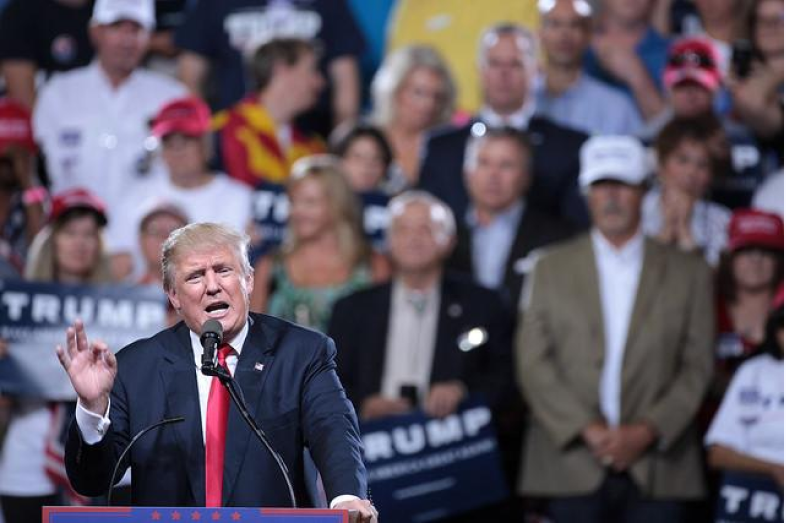

The long, strange election cycle came to an end Tuesday with the election of Donald Trump as the next president. And while his campaign platform was scarce on education policy details, there’s no question his administration will have a significant impact, from early childhood to K-12 and higher education.
But it’s the unanswered questions and uncertainty left over from the campaign season that leads the national headlines on the education front. As Education Week’s Andrew Ujifusa writes:
“Having never held elected office, Trump’s K-12 record was already relatively thin compared to some of his opponents when he began running last year. He’s mostly discussed public schools in sound bites, claiming that he would get rid of the Common Core State Standards (which aren’t a federal program) as well as gun-free school zones.
And his election could represent a serious threat to the U.S. Department of Education, which he has said he’d either drastically cut or eliminate altogether. Plus, key Obama-era regulations governing the Every Student Succeeds Act, which many Republicans have said they dislike, could also be rescinded by Trump.”
The Hechinger Report has a solid roundup of reactions to Trump’s election, including “a plea for the vulnerable and the bullied.” Among some of the other early takeaways on the education beat:
- Voters in Massachusetts soundly rejected expanding school choice. A proposal to raise the state cap on charter schools and allow larger enrollment at existing campuses was defeated , with 62 percent of voters opposed.
- Georgia voters said no to the creation of a statewide “Opportunity School District.” The measure, rejected by six out of every 10 voters, would have allowed the state to take over schools deemed as underperforming and put new leadership — including potentially charter school operators — at the helm.
- Bilingual Education in California – An overwhelming number of Californians, 73 percent, voted in favor of ending the state’s restrictions on bilingual education for students who are learning English as a second language. This came as no surprise to many in the state, where dual-language programs have been on the rise in recent years.
On the higher education side, a similar lack of clarity on Trump’s policy stances also dominated the headlines. And there are concerns that his election could spur greater divisiveness on college campuses already grappling with complex issues related to diversity, sexual assault, and racial tensions. From the Chronicle of Higher Education:
For now, the biggest and most lasting imprint of his abrasive campaign may be apparent in the charged climate on college campuses — one that could worsen after his surprise victory. Across the country, colleges have grappled with questions of diversity and inclusion that arose in part because of Mr. Trump’s divisive rhetoric.
On the federal policy front, Inside Higher Ed’s Andrew Kreighbaum notes that the reauthorization of the Higher Education Act is looming, and will be shaped by a Congress where Republicans control both the House and the Senate. Also at issue – holding colleges accountable for their students’ success after graduation. As Kreighbaum writes:
“A number of higher ed issues would be on the committee’s agenda, including the so-called risk-sharing proposals that have gained bipartisan support in both chambers. Risk sharing — also frequently referred to as “skin in the game” measures — would entail holding colleges and universities accountable for outcomes like graduates’ ability to repay their student loan debt.”
Here’s a sampling of other education-related stories pegged to the 2016 elections:
- Inside Higher Ed editor Scott Jaschik offers his take on the higher ed implications of Tuesday’s election.
- Indiana’s Schools Superintendent Glenda Ritz, a Democrat, was unseated by Republican challenger Jennifer McCormick.
- The nation’s longest-serving state superintendent — June Atkinson of North Carolina — also lost her post, and will be replaced by Republican Mark Johnson.
- A Maine ballot measure on school funding was still too close to call, while Denver voters approved a $628 million tax package to build new campuses and modernize existing ones.
- Oregon voters supported new state funding for career and technical education, dropout prevention and college readiness programs at public high schools.
For more on the impact of the election, join EWA at the National Press Club on Monday, Nov. 14 at 2 p.m. You can participate in person, and also watch the forum online.